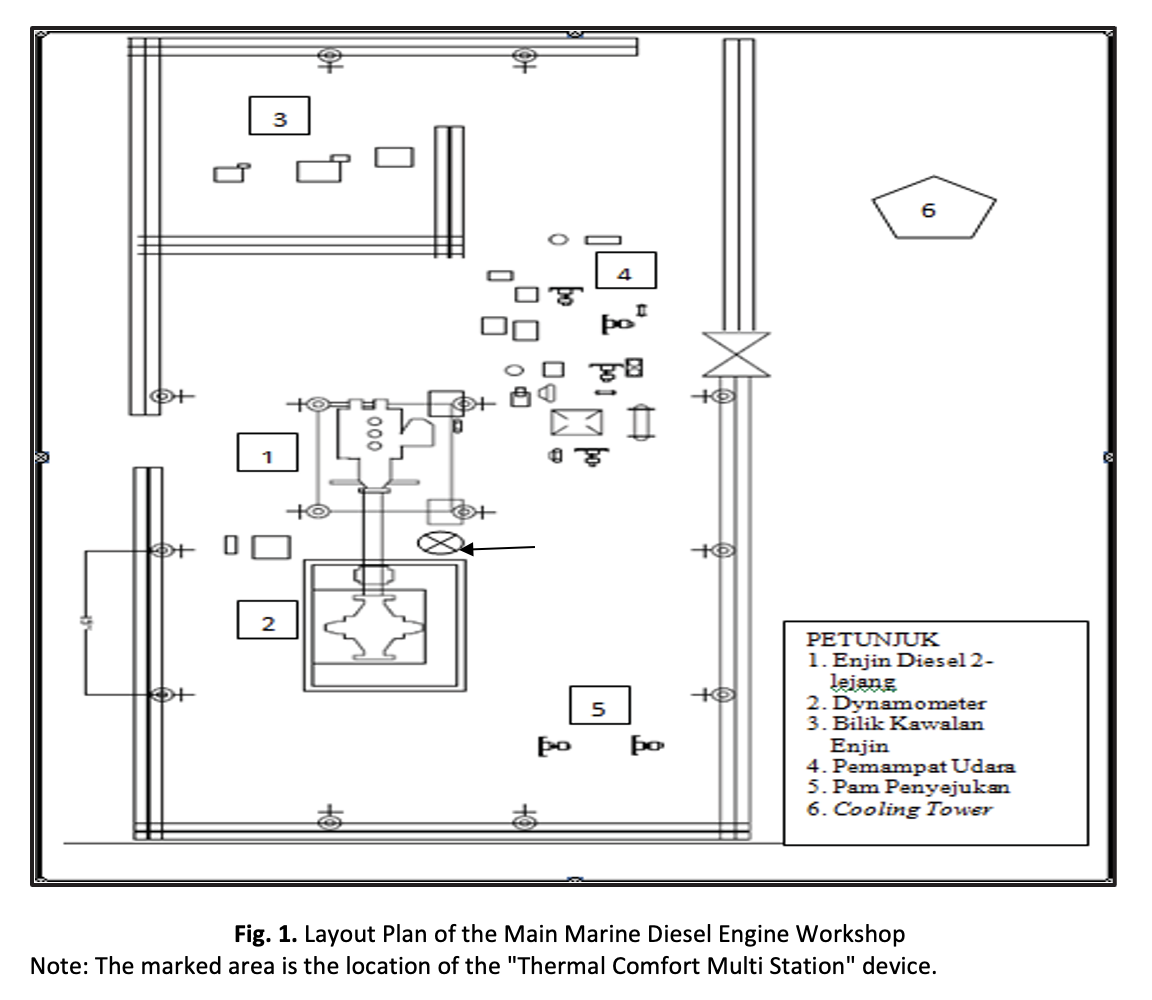A Study on Lighting and Noise at the Main Marine Diesel Engine Workshop
Keywords:
Lighting, Noise, Marine Diesel Engine Workshop, Occupational SafetyAbstract
The quality of the physical environment in technical workshops directly affects safety, comfort, and learning effectiveness. However, limited empirical evidence exists on whether polytechnic marine engineering workshops in Malaysia meet established lighting and noise standards. This study investigates the adequacy of lighting and noise conditions in the Main Marine Diesel Engine Workshop at Politeknik Ungku Omar, Ipoh, aiming to evaluate compliance with international occupational standards and to understand potential implications for student safety and performance. Over a four-day period, lighting intensity (lux) and noise levels (dBA) were measured using a Thermal Comfort Multistation (TCM) positioned in the main activity zone. Results were analyzed against standards from the Illuminating Engineering Society of North America (IESNA), the Deutsches Institut für Normung (DIN), and the Occupational Safety and Health Administration (OSHA). Findings revealed that average illumination (≈550 lux) exceeded the minimum thresholds for rough installation work, while average noise levels (≈70–75 dBA) remained below the recommended exposure limits. Although both parameters met safety criteria, fluctuations in lighting and short-term noise peaks near 90 dBA could momentarily affect focus and comfort during training. These results highlight the need for ongoing environmental monitoring and targeted improvements—such as adjustable task lighting and acoustic management—to sustain safety and learning quality. This study contributes baseline data to the limited body of research on environmental safety in Malaysian polytechnic workshops and informs institutional planning for safer and more effective learning environments.








